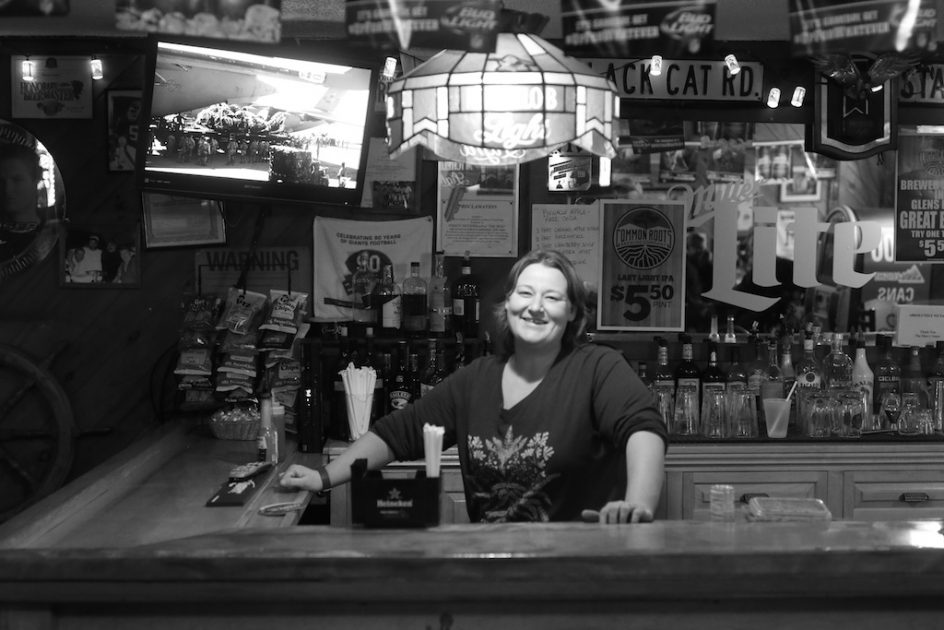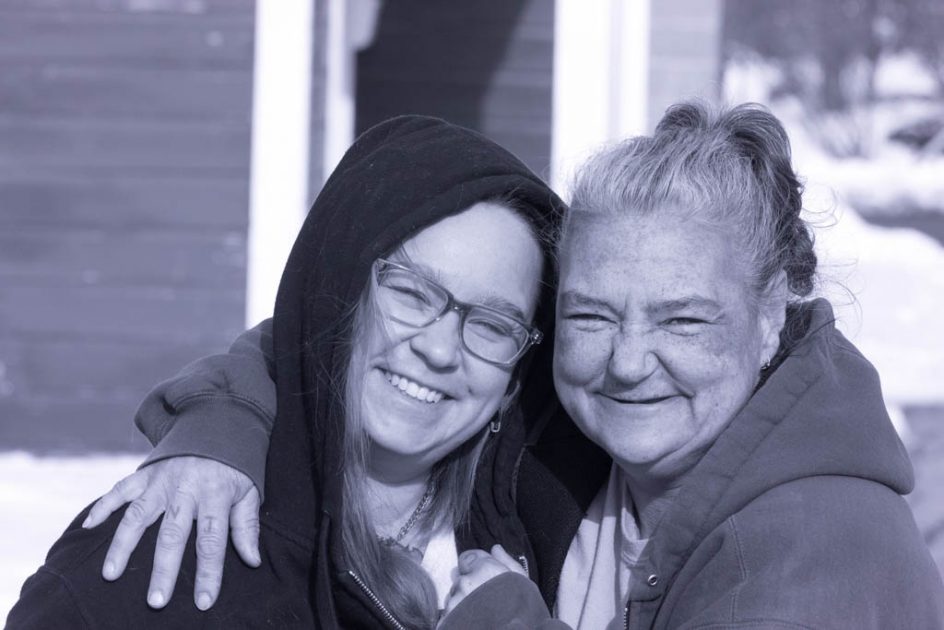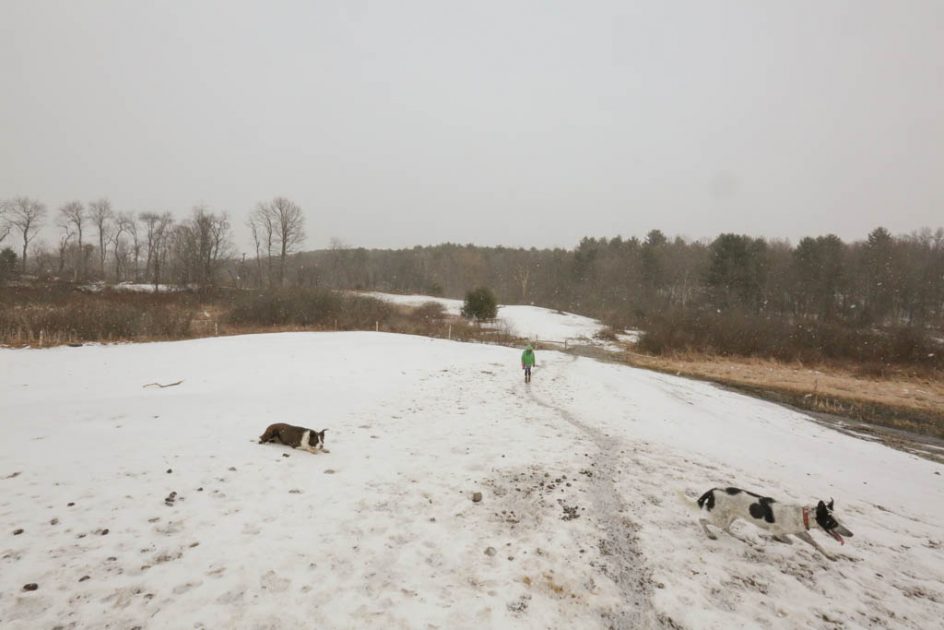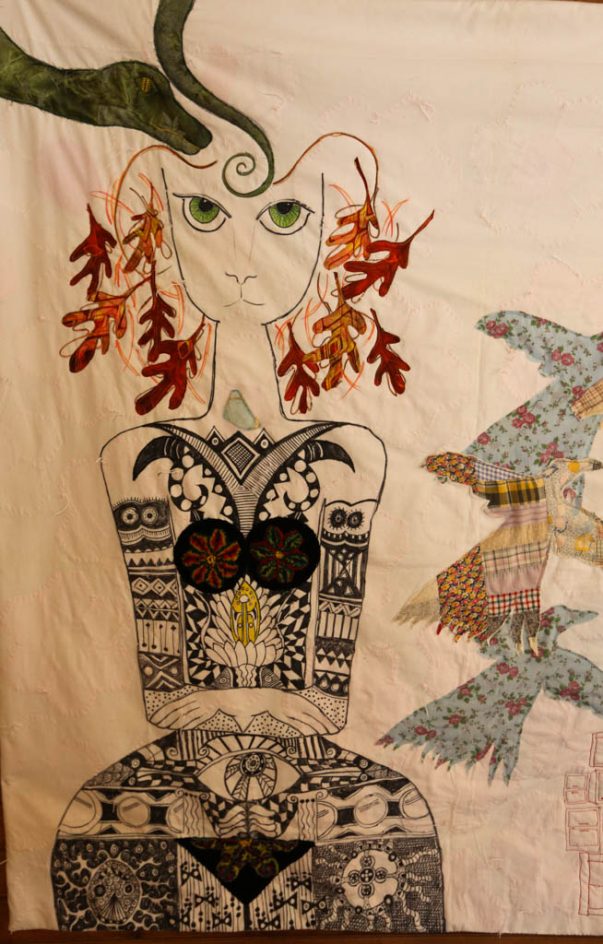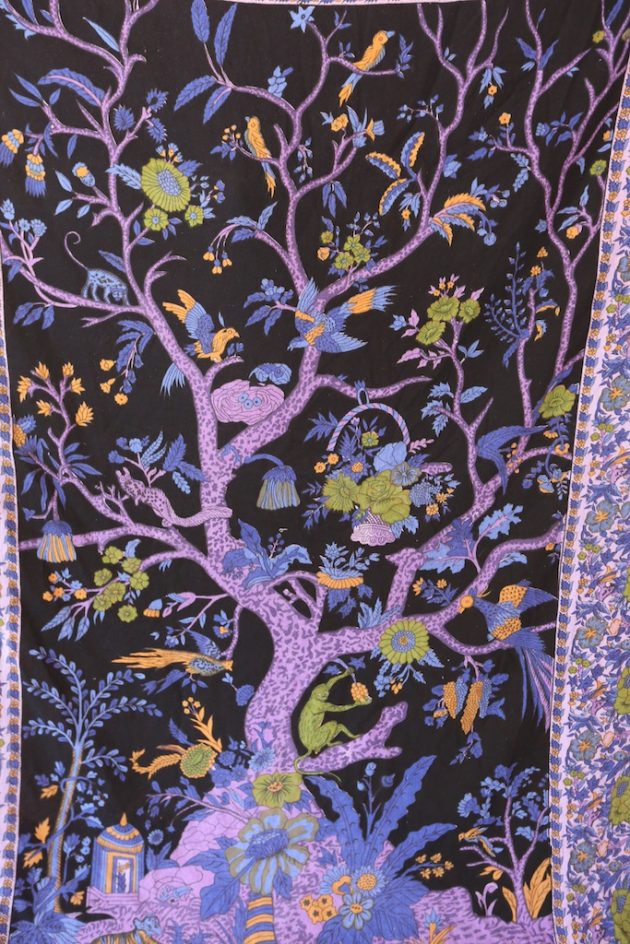
The second part of my birthday present to India – two beautiful fabrics from that country – came today and Maria hung it up in her studio. I’m not sure what she will do with it, and it isn’t my business, but I thought it might be nice to have something creative from India in her studio as she prepares to leave for Kolkata on February 12th, a week from Sunday.
The reality of this trip is hitting both of us at once, a mixture of panic, shock, excitement and bewilderment. It is getting close, it is somewhat overwhelming. We both are feeling it, even though I am not going. This is the most dramatic event in our lives for a while, at least since our flight from Bedlam Farm and resultant bankruptcy.
Those were pretty exciting, too, but this seems bigger somehow.
Maria is on a bit of a roller-coaster, sometimes anxious, sometimes exhilarated. She wakes up at 3 a.m. going over trip details in her head, I get her to sleep by telling her baby animal stories.
This is to be expected, I keep telling her, but she has this idea that she ought to be Wonder Woman. But even Wonder Woman had emotions and got anxious sometimes.
Traveling to India is not, we are learning, a simple thing. There is much paperwork and preparation – shots, visas, passports, complex and expensive travel arrangements to and from India and within, detailed and constantly-changing itineraries, packing and planning.
We have talked to people, watched videos, read pamphlets and books.
Maria is ready, but she is understandably worried that she will forget something, or lose a document, or put something in the wrong place. She is practicing packing. One of the most unnerving things for me about the trip is that people don’t ever speak to people anymore, everything is done online. Even the visa comes in an e-mail you print out. There is always this nagging feeling that you forget something or did something wrong.
We’ve gone over everything together many times, and when she needs to, Maria calls our wonderful friend Dahn Gandell, who invited her on the trip to India. Dawn is a pastor in Rochester, and a dynamo. She’s going on the same trip as Maria, she has been helping the victims of sex trafficking for some years, and she was the one who invited Maria to come. When Maria drifts to panic, she calls Dahn, and Dahn’s enthusiasm and excitement are infectious.
Sometimes, you just need to talk to a person.
People do sometimes say the strangest things about going to India. There are the continuous dire warnings about the food and water, almost reflexively, everyone says “don’t drink the water,” and they talk of the trauma over all the poverty and suffering. (The socially conscious group organizing the tour always has bottled water available and knows where to get food that is safe to eat.)
The heart of the trip for Maria is teaching the victims of sex trafficking how to make potholders and other forms of art they might sell in order to make a living. Everybody needs a potholder. That, I think, will be the magic for her, but I can’t know what she will see or how she will feel about it. It will be wonderful to hear that from her.
I don’t belong on this trip, I will be in the right place doing the right thing.
To get her shots, she had to pay $200 to see a doctor who warned her about the 1,000 dangers she might possibly face, and in great and sometimes horrific detail. The other day, a friend broke in on Maria’s talking about the trip to warn her to bring toilet paper at all times, everyone in India wiped their bottoms with one hand and ate with the other, she insisted. Be careful which hand you shake.
I wondered why this very lovely person would tell her a story like that on the eve of her trip.
This toilet habit, of course, is not true throughout India, it has been known to happen in some places at some times. It is really not something Maria needs to prepare for or be warned about in her nice new hotel in Kolkata, she will be surrounded by people who live in India or travel there often. It would be wonderful if warnings to people were banned for a while, I also get them every day.
(I carelessly mentioned that I fell down yesterday on the ice and couldn’t get up, it was so slippery. People warned me to stay indoors and there were all those messages about cleats for the ice, as if I had not heard of them. I have no intention of staying indoors all winter, that is not why I came up here. If you live on a farm with mud and ice and manure, you know those trak shoes are useless, they come off in a flash, and once they are caked up, they love to help you fall. I have had some of my best falls on trak shoes. The truth is, if you live on a farm in upstate New York in the winter, you will fall once in awhile. That is life.)
Maria is, of course, bringing toilet paper, the tour organizers and every travel guide suggested that from the first.
Toilet facilities can be sparse in crowded cities.
Several people have e-mailed her saying they admire her bravery for undertaking such a forbidding and dangerous trip, as if she were hiking in the Amazon.They say they couldn’t imagine going.
We know lots of people who have been to India a number of times and loved every day of it. It can, they say be overwhelming, the people are wonderful, many are poor, it is a feast of wonderful things and beautiful things and sad and sobering things. It’s like having a baby, everyone rolls their eyes and talks about how horrible and exhausting it is, no one seems to recall that it is one of the most precious experiences of life. I was shocked before Emma was born to hear so many people tell me how awful it would be. It was not.
We love to warn other people of danger, rather than remind them of joy, it seems to be in the nature of people.
People have also been extraordinary helpful and generous, it is touching to see these letters with small contributions continue to trickle in for Maria. They are welcome. This trip is expensive.
I am going up and down as well about the trip, no panic since I have nothing complex to keep track of, but with an awareness that I will miss her deeply, even as I am thrilled for her. We share our lives, we talk to each other all the time and hide nothing from one another. I get melancholic when I am alone sometimes, as I have often been alone in my life. I know how to do it, and I will have a few funky days of brooding. I consider that cleansing. I will appreciate her even more when she is gone.
I just dread saying goodbye, that is the hard part for me.
Technology makes the separation easier -texting, e-mailing and a Facetime or phone call once on most days. It will go quickly, and I love my farm and love my life, blog, photography, writing and animals. I am very lucky to be here, and I am aware of this every day. This trip is a miracle, a life-changer for Maria, and in some ways, for me too.
I will be getting up at 4 a.m., working very hard on my next-next book “Lessons From Bedlam Farm,” working on the blog,helping the refugee families, taking my photos, walking the dogs, doing the afternoon farm chores. Cassandra Comety will handle the morning chores so I can get to work early. That will take some getting used to.
I love solitude in many ways, a time to rest and think and stay within myself, important work for any writer. I will do a lot of walking in the woods, including our woods. A bittersweet thing, this trip, Maria, very literally the light of my life, will be gone for ten days. A big deal, but not that big a deal, if you know what I mean. I am so proud of her.
Kelly says I can have my own table for dinner at the Bog, I can hold court down there. The Mansion residents want me to come to dinner one night (with Red), and I have accepted.
And I cannot wait to see what goes on inside her very creative head when she gets back. Ten days until she goes, ten days until she returns.

